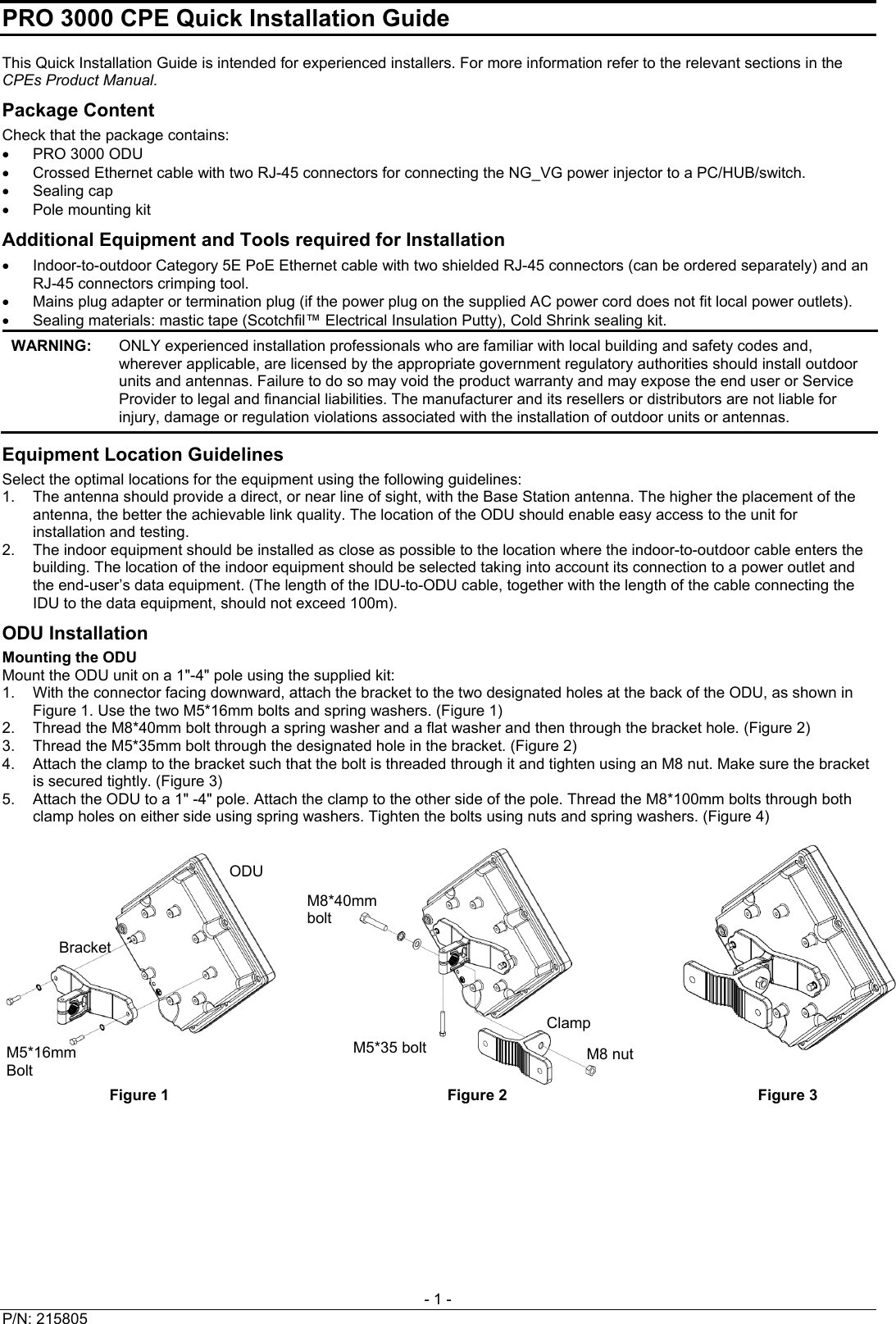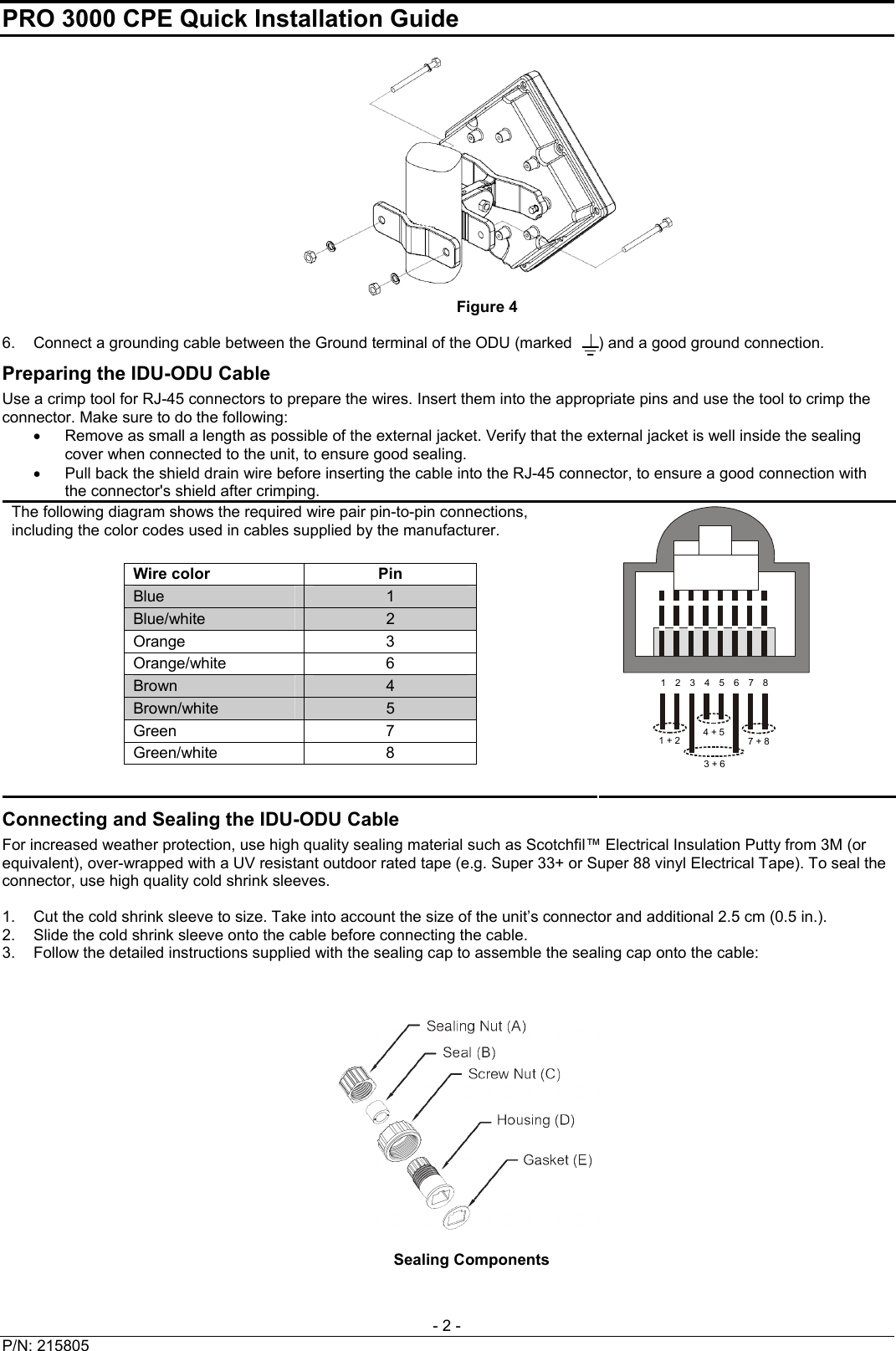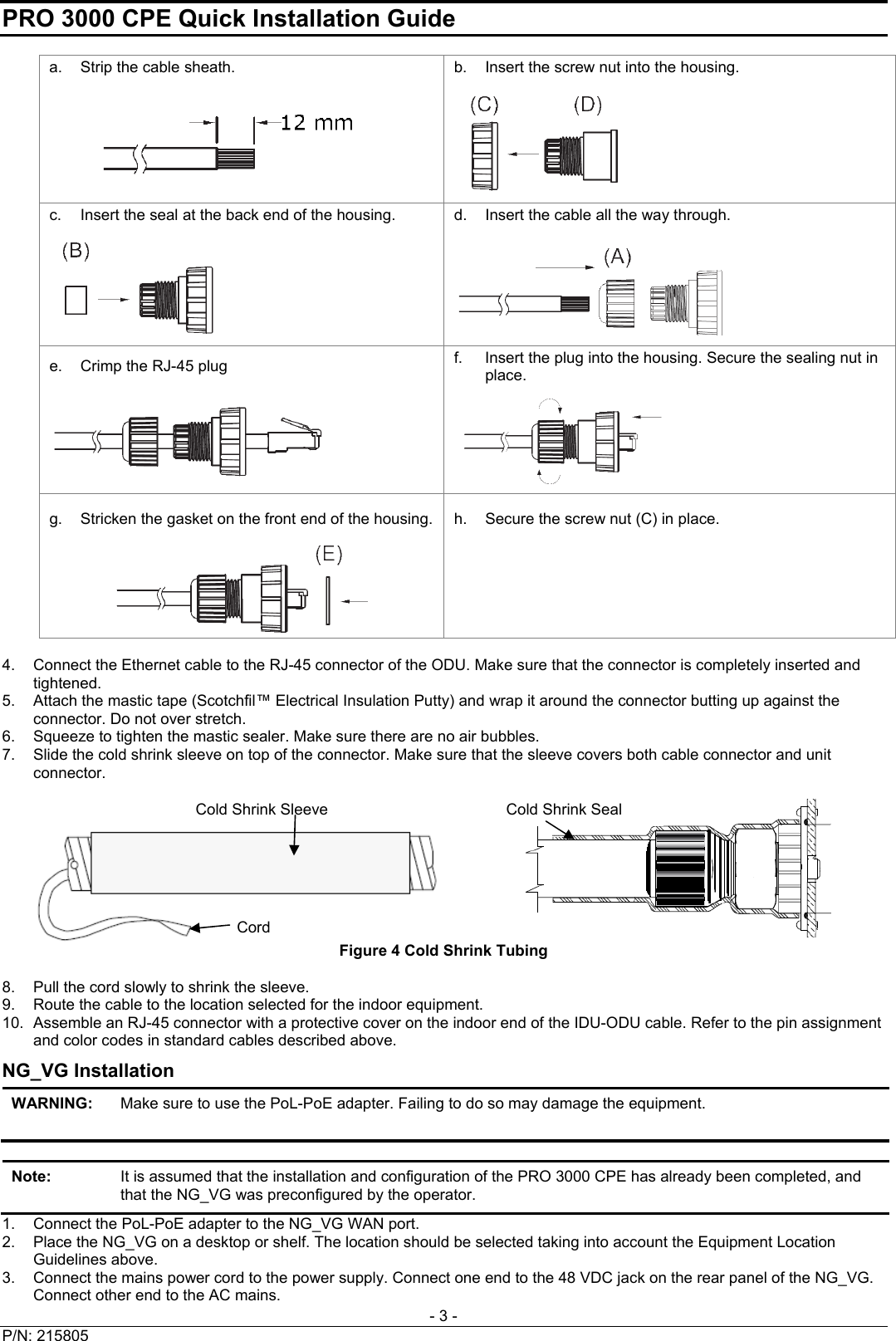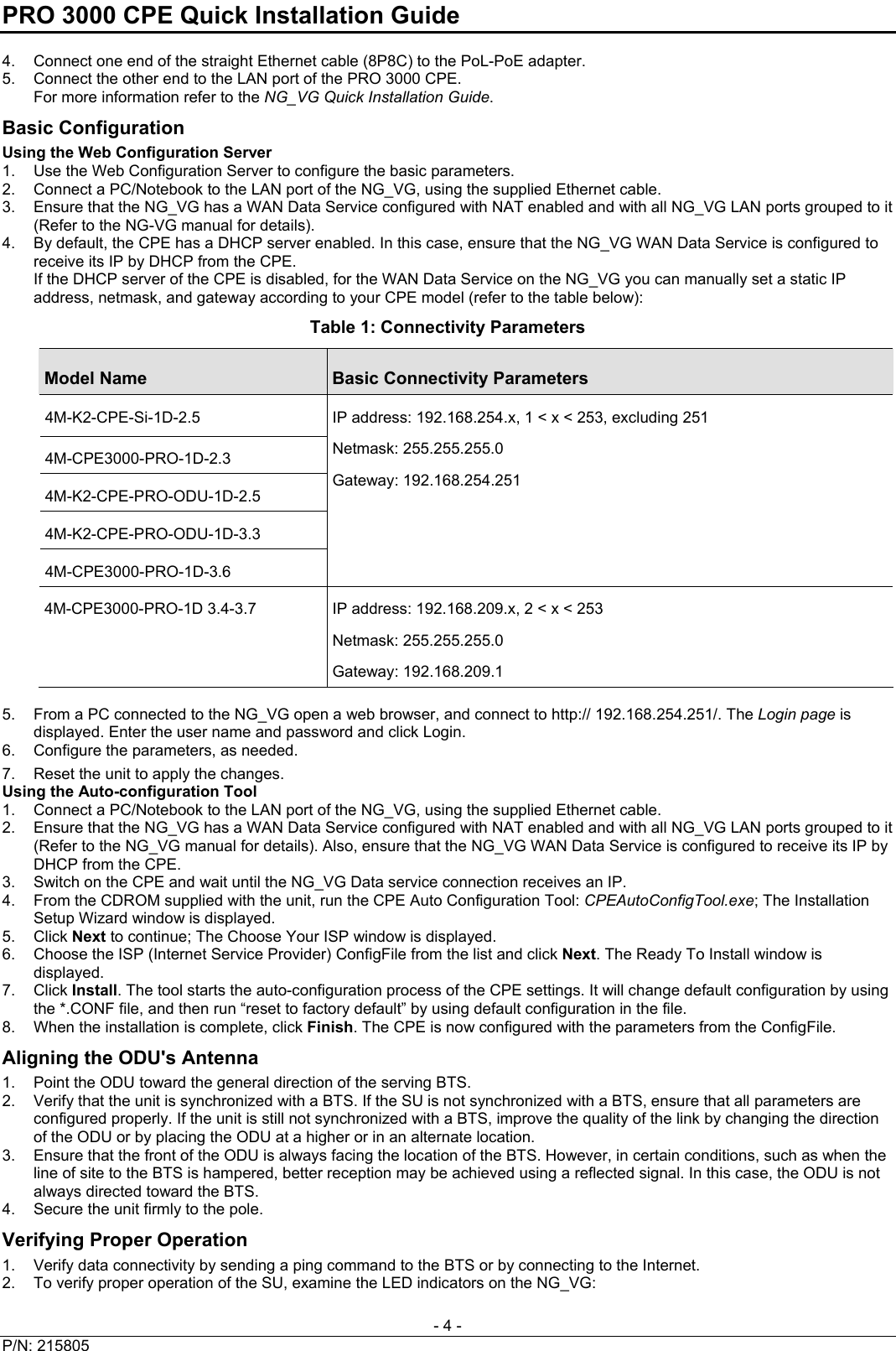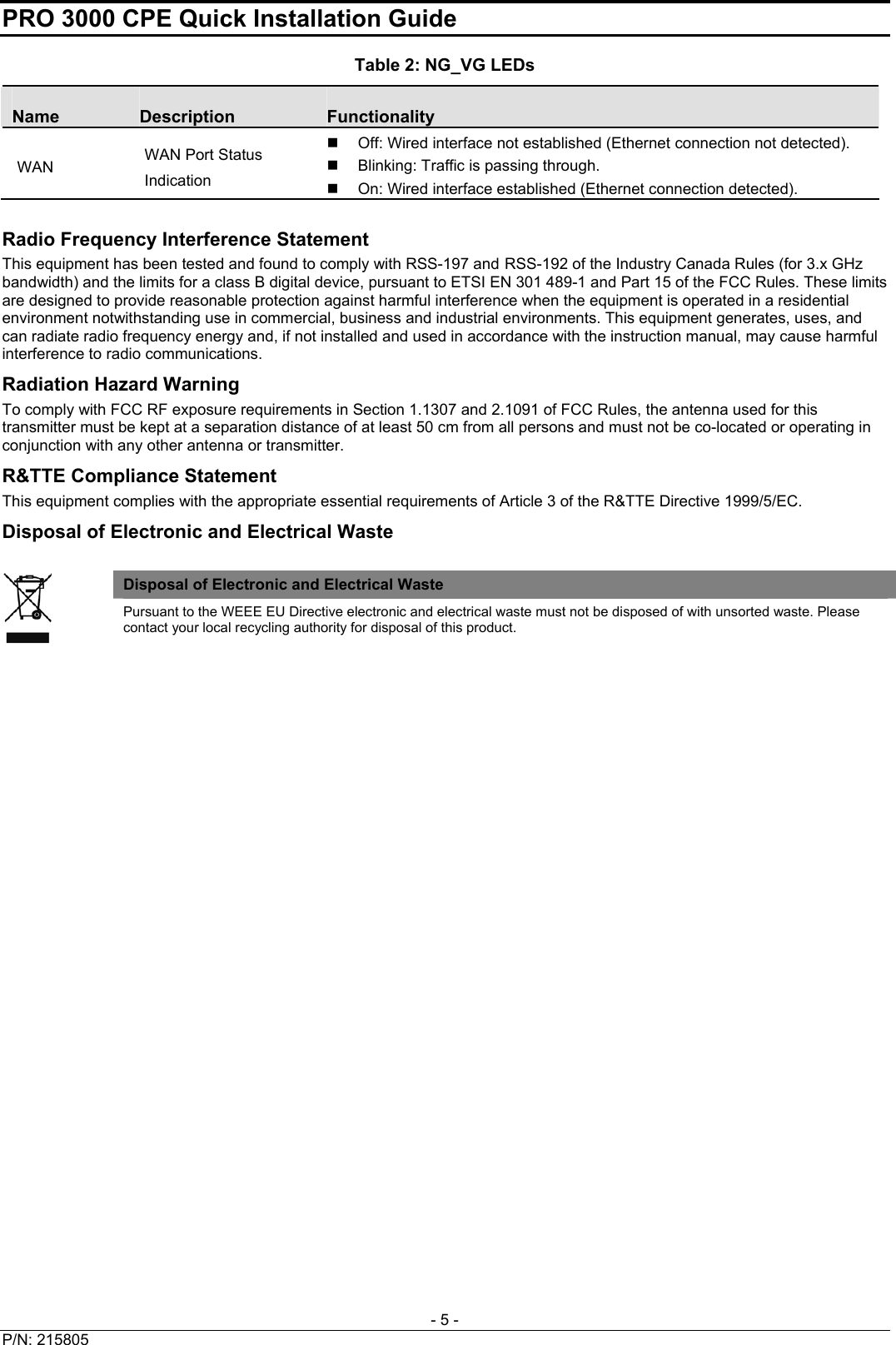GemTek Technology WIXS-168 WiMAX Outdoor CPE User Manual PRO 3000 CPE Quick Installation Guide
Gemtek Technology Co., Ltd. WiMAX Outdoor CPE PRO 3000 CPE Quick Installation Guide
Contents
- 1. User manual 1
- 2. User manual 2
- 3. User manual
User manual 2
